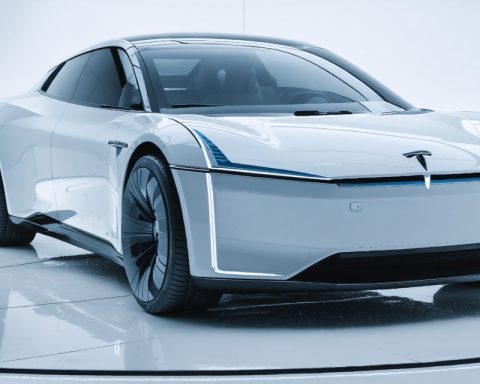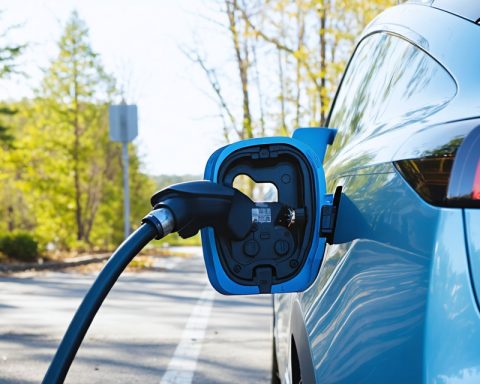In a surprising strategic shift, major technology companies are turning their attention to nuclear power as energy demands surge. Microsoft has recently entered into a deal with Three Mile Island, a site notorious for its significant reactor meltdown in 1979. This agreement allows the tech giant to tap into energy produced by one of the site’s aging reactors.
Small modular reactors (SMRs), a modern option for nuclear energy, are gaining traction among these corporations. Each SMR is capable of providing 300 megawatts of electricity, sufficient to light up approximately 250,000 homes. The ambition behind these reactors lies in their modular design, which permits quicker assembly and deployment.
However, challenges are mounting. Prominent figures in the energy sector express skepticism about the technology’s readiness for commercial use, emphasizing the lingering regulatory hurdles and costs associated with pioneering such projects. The notable rise in energy consumption driven by AI and data centers has intensified the race for clean energy sources, with reports indicating that the U.S. data center market could see demand escalate to 80 gigawatts annually by 2030.
In response to the increasing energy needs, tech companies like Amazon and Google have secured agreements for nuclear energy to power their operations. Despite the promising outlook of SMRs in tackling carbon targets, experts caution about the intricate path ahead, suggesting that widespread deployment could still be years away. The urgency to rethink energy infrastructure continues, revealing the delicate balance of innovation and public perception in the nuclear sector.
Nuclear Power: The Controversial Backbone of Tomorrow’s Tech Industry
The intersection of technology and nuclear energy is sparking new debates as major corporations champion this once-controversial power source. While organizations like Microsoft venture into energy deals with sites like Three Mile Island, the overall implications of this shift toward nuclear power are profound.
As data centers and AI technologies surge, so does the demand for energy, but as companies like Amazon and Google invest in nuclear energy solutions, questions arise about the wider implications for communities and the environment.
Impact on Communities
The emergence of small modular reactors (SMRs) could signal a localized power revolution, potentially benefiting rural and underserved areas. With each reactor providing reliable energy to around 250,000 homes, SMRs could emerge as a viable energy alternative, helping communities achieve energy independence. However, many locals express concerns over safety and environmental impacts, as the legacy of nuclear accidents looms large in public consciousness.
Energy Cost Dynamics
The integration of nuclear power into the tech sector could reshuffle the economic landscape. If successfully deployed, SMRs may drive down energy costs in the long term by supplementing renewable energy sources. Yet, the initial capital investment needed for nuclear infrastructure is steep, which could lead to price hikes in energy during development phases. This potential economic disparity raises concerns about equity in energy distribution.
Environmental Aspects and Controversies
While the adoption of nuclear power aims to tackle carbon emissions, the unresolved issue of nuclear waste remains contentious. Critics argue that the long-term storage of radioactive waste is a critical problem that has not been adequately addressed. Furthermore, the mining and refining of uranium have environmental repercussions, prompting the question: Is nuclear power truly a clean energy source?
Regulatory Challenges and Public Perception
Navigating the murky waters of nuclear regulation poses additional hurdles. As technology advances rapidly, existing frameworks often lag behind, leaving new nuclear projects in bureaucratic limbo. Public perception is another formidable challenge. While some advocate for nuclear as a solution to climate change, others fear another disaster akin to Chernobyl or Fukushima.
Is Nuclear Power the Key to Sustainable Development?
Nuclear proponents argue that embracing this technology is essential for meeting growing energy demands sustainably. By combining nuclear energy with other renewables, the potential exists for a balanced and resilient energy grid. However, achieving public trust and regulatory approval remains pivotal to unlocking nuclear’s potential.
Looking Ahead
As companies hurry to secure nuclear energy agreements in light of burgeoning energy demands, the path ahead is fraught with complexity. Stakeholders must weigh the benefits against the risks, considering not just profit margins, but also community welfare, environmental stewardship, and public trust.
It remains uncertain whether nuclear power can bridge the gap between technological innovation and responsible energy consumption. As nations grapple with climate challenges, the question persists: Can nuclear energy really be the catalyst for a greener future, or are we merely repeating historical errors?
For further insight on nuclear energy and its implications, visit Energy.gov and explore their resources.










